You’re listening to Burnt Toast!
I’m Virginia Sole-Smith. Today I’m chatting with Christyna Johnson (@encougagingdietitian on Instagram and TikTok).
Christyna is a registered dietitian specializing in eating disorders, disordered eating, and body image work. She also talks a lot about the intersection of consumerism, diet culture and white supremacy — and that giant topic is what we’re getting into today.
I’ll be honest: Unlearning consumerism is work I’m truly just beginning to contemplate. It’s a topic I have a lot of questions about, and Christyna has a lot of answers, but they are (and should be!) the kinds of answers that raise even more questions.
So I’ll be really excited to hear your responses to this one. I’d love to know how you’re wrestling with your own shopping habits and how you see diet culture showing up there?
PS. If you’re enjoying the podcast, make sure you’re following us (it’s free!) in your podcast player! We’re on Apple Podcasts, Spotify, Stitcher, and Pocket Casts! And while you’re there, please leave us a rating or review. (We like 5 stars!)
Episode 134 Transcript
Christyna
My work centers around people’s relationship with food, their bodies, and the systemic cultural things that they bump up against that really impact their relationship with food and their body. I help them figure out how to navigate those spaces. Because sometimes we can’t change the things we bump up against, but we can change the way we respond.
Virginia
You do amazing work connecting our personal experiences of diet culture to racism, to classism, to all of these systems of oppression. There was one post you posted recently, and I saw Aubrey Gordon shared it, and I shared it. And we were like, “Oh my God, Christyna just nailed that.”
You wrote, “It seems that many of us have conflated rejecting the diet mentality with dismantling diet culture.” What is rejecting diet mentality? What is dismantling the system? Why are these not the same thing?
Christyna
I’m so glad that y’all liked that post. That one was sitting internally and I was like, I’ve got to just put this out there in the world and just let it do what it needs to do.
Rejecting the diet mentality is a very individual process. It’s saying within myself, where have I internalized this idea that I need to be on a diet. It’s examining all these beliefs you have about food, and rejecting anything that you do not need, want, or serves you no purpose, especially as it relates to diet culture. Again, that’s a more individual process.
Dismantling diet culture is very much systemic. That is now a communal practice. One individual cannot dismantle that system. Part of dismantling that system is acknowledging it for what it is, but acknowledging it as the fact that it’s not the system itself. It is a tentacle of the system, right? It’s a root of the system. In order for me to dismantle diet culture, I have to acknowledge that it is a part of racism, it is a part of white supremacy. If I can’t acknowledge that, I can’t dismantle it. We end up sort of in this stuck space where we’re performing the dismantling of diet culture because we won’t acknowledge its roots, its origins.
Virginia
And when we’re performing that dismantling, we’re maybe making our own lives easier or more comfortable without really ever getting at the root of it.
Christyna
We’re not getting at the root of it. And we’re not making it any easier for people who are having a harder time than us. Part of diet culture is that it doesn’t just harm certain groups of people, it harms all of us. The fact that we’re not dismantling it means that we’re not dismantling it for people in larger bodies, for people with disabilities, for people in poverty, right? We are leaving them to suffer and endure this diet culture that we’re refusing to dismantle because we will not acknowledge and eradicate the systems from which it originated.
Virginia
Do you feel like, for most folks, the personal work has to come first in order to understand the larger system?
Christyna
I think for most people, the personal work does need to come first. There’s a lot of brain space occupied with dieting and diet culture and our relationship with food. That amount of brain space does not leave a lot of extra room to sit with the discomfort of acknowledging these systems and the harm that they do.
I think giving someone the space to work through their own stuff oftentimes frees up brain space, and gives them good skills to cope with discomfort. Because the discomfort you’re going to have with your own internal work is not going to be nearly as uncomfortable as acknowledging these big systems and acknowledging all the areas of our lives that they touch.
Virginia
I feel like people are going to be listening to this and nodding, and then thinking like, wait, but I need an example. Like, okay, the personal work might be “I’m letting myself eat brownies.” What would the bigger work look like?
Christyna
The bigger work is why do we care that much about brownies? Why are we so fixated on who can and cannot eat brownies? Why is this person allowed to have a brownie on the internet, but that person isn’t? Why do we need to make brownies do something for us? Can’t dessert just be a dessert? Why do my brownies now need to offer me protein? Why do they now need this extra pack of fiber? What’s going on here?
Now we’ve moved past me the individual, and we’re asking: Why is this not equally and equitably accessible to everyone else?
Virginia
That’s a really helpful way to think about it. So if you’re starting with your personal stuff, then add on, “who else doesn’t have access to this? Or who else is being impacted by this?”
Are there any other kind of common examples that come up for folks?
Christyna
I’ve been sitting with this idea of, what does it mean to perform our relationship with food to ourselves? This is one of those things where it’s like, oh, I should be cooking for myself. I should want to eat these fruits and vegetables so I’m going to purchase them with the hope and the fascination that I will eventually have the internal desire to do that.
Then we sit here and we’ve got this wasted food because it’s like, but I don’t want to cook that. I don’t want to eat that. I don’t even know what to do with it. But if I buy it, I’ll figure it out. That’ll give me the incentive to figure it out.
Virginia
You just explained why I stopped joining CSAs, which I do really believe in as a concept. But it was me with a fridge full of kohlrabi every week, not wanting to eat kohlrabi more than maybe once, and not knowing what else to do with it, and it just going bad. And then the guilt.
Christyna
First of all, most of us don’t know what to do with kohlrabi, so I can’t blame you there.
In the sense of like, oh, I should be cooking. We’re really thinking, this convenience food is “bad” for me, right? This prepackaged thing is bad for me. I’m allowed to do it only if I compensate in this other way. As opposed to really taking a step back and being like, why do we care who is and is not eating something convenient? Why is there even a moral concept around this? Why am I good for avoiding this or bad for using this? What even is the history of convenience food?
Because history of a convenience item was that historically—after we somewhat get rid of slavery, because it’s still legal in a lot of states—most Black women worked as housekeepers, right? They maintained the houses of these people that they no longer were owned by, but now just worked for. So if that family is no longer doing their own cooking, but eventually Black women move away from this domestic labor, who’s doing the cooking? Enter convenience foods. Convenience foods started as a luxury.
Virginia
That makes sense.
Christyna
But now we associate convenience foods with poverty. And we don’t want to be associated with that. So we say, I can’t do that, if I do that I’m now a bad person. I should be cooking for myself because that’s the morally superior thing to do.
Virginia
Now cooking for yourself is the luxury act. But it’s luxury embedded with morality. It’s all twisted together.
Christyna
Yes. There’s the individual aspect of, “I need to change my relationship with convenience foods,” but then there’s the social-cultural aspect of, “We need to change our relationship with convenience foods,” so that it is now just a neutral concept.
If you want it and you have access to it, go for it. If you don’t want it, that’s fine. But you don’t really have to talk about why it is or isn’t a good thing,
Virginia
I’m certainly someone who has really embraced convenience foods in my own life. And I talk about a lot on the podcast and in my writing about how important it is to stop demonizing them.
But I’m always doing it with all these explanations of why they’re valuable—so there’s an element of still apologizing for it in there. Like “It’s okay to use convenience foods because I’m separated and it’s just me having to get food on the table”. I’m justifying that it’s useful as a single mom to have convenience foods, which it is, but I shouldn’t have to.
Christyna
You don’t have to explain that to anybody. You have those convenience foods because that’s what works for your life. And that’s that.
Virginia
And yet, how often do I hear from a friend, “well, I guess it’s okay, we’re doing pizza tonight,” as if they’ve failed at some larger purpose.
Christyna
Pizza has carbs, fat, and protein. It serves a purpose and it meets the needs of the people. It’s okay.
Virginia
You talk a lot about the intersection of consumerism and diet culture. On the one hand, we’re talking about understanding the history of convenience foods, and saying let’s not demonize them anymore. Let’s not moralize that. And I’m here for that.
On the other hand, there’s a lot of consumerism bound up in not just convenience foods—you know, my CSA was also a form of consumerism. So, talk to me about how you think about these issues.
Christyna
I think it in some ways goes back to that performance piece of like, have you objectified your relationship with food where it’s no longer just for you, but it’s for these other people around who observe it? Are you looking at it through the lens of these other people who are observing it?
I think that’s when we really start to step in to this consumerism piece. Are we performing it for the internet? Where now our objective is to see how are the people on the internet gonna respond? Likes, clicks, shares, whatever? Are we performing this for the other people in our life because we want them to think a certain thing about us or perceive this certain thing from us that will drive us to buy these things?
But then, we are also constantly served ads. Ads are everywhere. I have a neutral relationship with ads at this point in time, but sometimes it can be whatever.
How am I interacting with this? Am I using this as a way to deal with my feelings as opposed to other ways of dealing with my feelings? And then using this as escapism, am I using this as a form of status? If I buy this thing, then people will accept me in this particular crowd that I want to exist in. I’m looking at the Stanley Cup.
It’s an interesting line, because it’s so individual. But I think the way that I conceptualize it to teach it to other people is the idea of like, what do you need to feed yourself adequately, consistently? And then where are you adding some bits of fun in there? Because we can’t sacrifice fun, otherwise things stop being sustainable.
So now we’re getting into the intention of this. Why am I buying another of a cup that I already have in three other colors? Why is it that I need this new color? Is the cup now my purse? Why?
I was listening to another podcast about the Stanley Cup and the one of the girls in that episode had 11 of them. Each of them cost $50. Why? What are you doing with 11 cups? How do you plan to use those 11 cups that all do the same thing?
Also, what are you going to do when the tide shifts? Because it’s going to shift, right? What do you do with those 11 cups that you’ve purchased that are no longer cool or trendy?
With food: What are you doing with this food item that you didn’t have a plan for? Or maybe only had one purpose for and never found another purpose for? It’s just sitting in your pantry collecting dust.
Virginia
I’ve definitely done that with water bottles for sure. Trying to think of a food example. I have many boxes of quinoa or other grains that I bought thinking this was something we were going to get really into eating, and then realizing my kids don’t like it. I’m not sure I like it.
Christyna
I went on a pantry clean out for that express purpose, to eat my way through some of the things that I have. And I was like, after I finish this, I probably will never buy this again because I don’t like it. It serves no purpose for me. But I already spent my money and we use what we have.
Virginia
I could do that for a while, I think. I’m just sitting with some discomfort, realizing how long I could probably feed us out of our pantry. But we wouldn’t like what we were eating!
Christyna
That’s where you start to get a little creative. Figure out some sauces, figure out some spices, remix a couple of things, right? Put it with the stuff that you like. I still made that pantry little adventure fun, because otherwise it would have been like, this is miserable.
Virginia
Like, I really don’t want to keep eating this box of farro.
Christyna
It’s like, okay, only pair this with other stuff that I do enjoy to balance this back out. It still comes back to that I should want to do this thing, right? I should want to eat this way. I should want to enjoy this thing. Other people are enjoying it. And I want to be like these other people. So I should enjoy this, even though we don’t and that’s totally okay. You don’t have to enjoy that thing.
Virginia
I think it’s so important to understand those “shoulds” as a pattern of consumerism, and that this is diet culture, teaching us consumerism. Because often when we talk about food and excess and buying things we don’t need, we start shaming the processed foods and the convenience foods, right?
People tend to be like, “Americans are so wasteful,” because we buy these giant bags of chips at Costco, ignoring the fact that a lot of us are wasteful because we’re buying trendy wellness branded or health branded items that we actually don’t end up eating.
Christyna
Yeah, I’m pretty sure that bag of chips is gonna get eaten. I’m not worried about you wasting a bag of chips or disposing of these chips that expired or went stale. I don’t see that too often. That supplement that’s been in the pantry that you spent $30 on that you didn’t do anything else with? The Greens powder that you realized was gross and you spent $50 on and it’s just sitting in the closet collecting dust? Like, I’ve seen it somewhere and they keep telling me it’s good for me, and that I should want this. And I have now abdicated my life’s desires to whatever other people to tell me what I like, to tell me what I want, what I need.
Virginia
So it’s not necessarily that we should all buy less in general—we should buy more thoughtfully. We should buy what we want to buy as opposed to buying what we’re told to buy.
Christyna
Buy what you want to buy. In theory, buying what you want to buy will oftentimes lead to less because you’re not double spending on like, I bought all these groceries and I didn’t really know what to do with them. I had no plan for them and I’m overwhelmed so now I just ordered out.
Virginia
That would end up being less because you’re not buying all the shoulds along with it.
Christyna
I think that having that space to explore why you’re buying what you’re buying, really will help you reengineer or evolve your relationship with spending in general, with that sort of consumerism in general. Unfortunately, we can’t exactly escape consumerism because we have to exchange money. Thank you, capitalism. But I think doing it more intentionally is the goal here.
Virginia
It feels like there is a potential here for being more thoughtful about consumerism to become another way of saying like, “I’m just watching what I eat,” or “I’m trying to make healthy choices.” This could end up being another type of restriction—exactly the type of restriction we’re trying to escape when we are working on dismantling diet culture.
Christyna
Yes, I am so glad that you asked about that. The way that I help people understand this is, I do this really intentional grocery planning with them where I’m like, before we figure out what we need to get from the store, what do we have at home right now, right? Use what you have. What are things that you have that you want to use up or need to use up? Okay, now with that, let’s plan some meals around that and then figure out what you need to grab from the store. Let’s make sure we plan something fun. Again, if you take the fun out of it, no one is enjoying this. We’re all miserable now.
And then going from there of like, okay, now that we’ve done this, examining, why are you buying that cup? Asking the question of, if I’m going to buy this gadget or gizmo for my kitchen, what purpose does it serve? What is it doing for me, right?
Sometimes I’ll suggest giving yourself a timeframe. I put this on my list and then notice if you find yourself reaching for that thing that you don’t have. If after this length of time you find yourself continually reaching for it, of course, by all means, get it. If you realize at the end of that length of time, I didn’t reach for that…
Virginia
I’m trying to do this with clothes shopping, where I put things on a Pinterest board throughout the month and then at the end of the month, I look and think what have I actually needed. I realized my black pants from last year don’t fit anymore. Like, I truly do need a new pair of pants. Pants that fit are important. But Lizzo was wearing a cute pink and red heart print sweatsuit the other day, and I have that saved, but I have a feeling that if I sit on it for two weeks, I’ll be like, do I need sweatpants with pink hearts on them? I don’t know.
Christyna
Or that might make a lot of sense within your wardrobe.
I did this thing. I went home over the holidays and I was walking through the store with my mom and I picked up this sweater. I liked the texture of it. I was like, I don’t normally like this texture sweaters. And my mom’s like, oh, you should get that. And I held it up to myself and I looked at it. I was like, “I don’t even know how I would wear this.” And I stuck it right back on the rack. I couldn’t see it in my wardrobe. As much as I thought it was really cute, I could not figure out what in my closet I would put on with it so I stuck it right back on the rack. Aside from telling you about this now, I haven’t actually thought about how I would wear that sweater so clearly it had no business in my closet.
Virginia
You didn’t come home and then get dressed every day thinking, “Where is that sweater? If only I had that sweater.”
Christyna
It didn’t cross my mind.
Virginia
What I like about the observing is, it’s morally neutral, right? You’re not blaming yourself for being drawn to the sweater or the Stanley cup or the whatever food items we’re talking about. It makes sense that we’re drawn to these things. They’re put in front of us constantly. But then you’re taking the time to think, Am I actually noticing if every day I’m getting dressed thinking I have no pants to wear? Well then that’s something to address.
And that does feel less restrictive than making really strict rules about like, “I’m just not shopping at all.” But I know you’ve done a buy nothing challenge! I’d love to hear about your experience with that. I can say that for me, that concept feels like I would get into a weird headspace fast.
Christyna
There was a lot of intentionality around that. I did a minimal buy, not a no buy. I sort of set it up as like, okay, you still need to buy groceries. That’s totally fine. You still need to pay your bills, obviously. We’re more so looking at this spending around random trips to the store. I love books. How many books are you buying versus the books you’re reading?
Virginia
I refuse to answer that question, please continue.
Christyna
I was like, look, if you find yourself continually reaching for this thing and realizing you don’t have it, you can go ahead and buy it. But do some research around the thing that you want, so you’re buying it once and not buying it five times. Because that’s really important to me that I buy something once instead of having to consistently replace it because I bought a less quality version of it.
And instead of doing this cold turkey—wham, no more shopping—it was like, I’m going to gradually decrease this. Because if this is such a part of my life, let me work on some gradual reduction. So in the early stages I remember cleaning out my inbox, right? So I’m unsubscribing from a bunch of marketing emails. Because if you keep emailing me, I’m going to want to open it and look at it and see what are the new pretty things. But if they’re not in my inbox, how would I know?
Then for my social media ads, I intentionally engaged with things that even if it served me an ad wouldn’t result in shopping.
Virginia
Give me an example of that.
Christyna
Like, ads about nature and ads about a book and ads about yoga or something like that, right? Things that don’t result in me wanting to shop. It’s not a clothing brand. It’s not some kitchenware. It is, oh, look at this beautiful mountain range over here, you should come visit our mountain range.
Virginia
You’re not going to impulse purchase a vacation.
Christyna
Yeah, no impulse purchasing a vacation. That’s just not going to happen. Intentionally shifting the way that my ads were being presented to me did wonders. So I’m not like, oh, this cute. One click, thank you. I also made clicking to shop harder for me.
Virginia
I can see how that would be a useful thing.
Christyna
Taking out the information from my cards, undoing expedited shipping things. Now, if I’m having to consider the amount I’m paying for shipping, I’m much less likely to click Buy.
Virginia
And if I have to get up and go find my credit card and my purse is in the other room...
Christyna
Right. I don’t have that number memorized anymore. Well, I guess the exhilaration is over. Or saying instead of buying it online, what if I found it in a store near me? I have to go to the store for that.
Virginia
Online shopping is really the whole problem. I mean, in a different life when I didn’t have kids and before online shopping took over, I was a big recreational in-person shopper. But at least it was contained to what I could do on a Saturday afternoon.
Christyna
This isn’t to say that you can’t online shop because there’s a lot of accessibility in online shopping. I’m not saying down with the Internet or online shopping. It is important and useful. But I’m looking at if I can be more intentional about my online shopping, especially if it’s around something that I am likely to be like, click, click, click because these were all on sale. And look at that, I got free shipping. For me it’s books.
Virginia
I am uncomfortable with how worried we are about book purchasing, Christyna. I mean, I don’t know that I’m really ready to look at that one.
Christyna
You can’t see the stacks of books around me, but there are stacks. I love books. It’s a world to get lost in. I’m obsessed. But really stopping and saying, you have a lot of books that serve different purposes, whether they’re fiction, nonfiction, whatever, but you’re not currently reading them. You’re spending money that you’re not actually getting any use out of other than they’re pretty. They look good on your shelf. They look good in the stack, but books aren’t ornaments. At least not in this aspect. There are some ornamental books, but the books I buy are not ornaments.
I think the longer I was in that minimal buy, the more my relationship to buying shifted. I started to observe more that the only reason I thought about that is because I saw so and so do it. I thought I wanted that. I didn’t really want it. I thought I needed that. I didn’t really need it. I’ve gone this long without it and I didn’t notice that I didn’t have it. The buying became more intentional where it’s like okay, now when I’m thinking about going to the store I might have a list. Here are the items I need to purchase from the store because I no longer have any more of them.
Virginia
I do see the value in making lists. I used to not be a very good grocery list maker and I have I really come around on that one.
Christyna
The grocery list is helpful but then also I’m a Target girlie. So I decided to pause my meanders through Target and be like, let’s let’s find a new place to meander. As much as we loved to meander around Target, let’s find a new place to meander. Then when I go into Target now, I have a list of items I need to purchase. I need trash bags. I’m out of trash bags. Did I use up all the things I had? I just recently purchased skincare because I spent the last good chunk of time using up all the skincare I had.
Virginia
Oh, that’s interesting.
Christyna
That was part of my minimal buy was like use what you have. Use up all of that. I mean, I just bought toilet paper.
Virginia
Because there was so much extra toilet paper?
Christyna
I had what I thought was appropriate for an individual. I had a back stock of two or three big things back there. It wasn’t too much, but it was like, let’s just use what we have. The more I did that, the more I was like, man, there is a limit of keeping stock of something, like having a backup to where it’s now I’m just hoarding.
Virginia
Sometimes I will buy more toilet paper even though I know we have the back stock because I’m like, well, now I don’t have to worry about the back stock running out. There’s a weird need to preserve the back stock. But like, for what?
Christyna
That was the question I asked myself. Okay, but for what?
Virginia
For what? It’s COVID trauma, right?
Christyna
That was me challenging that, being like, okay, we’re not in that acute time right now. It is okay for me to purchase new toilet paper, it is okay for me to use the back stock I have on hand. It is okay for me to use all of this hand soap that I have on hand instead of buying new hand soap. It is okay for me to use all this skincare, this toothpaste. It is okay for me to use the back stock of food that I purchased during the peak of the COVID, because we’re not there.
Virginia
One area that’s really tricky for me, and I think a lot of listeners can probably relate to this, is shopping to solve a problem. I just did it last weekend. My kids keep losing their hair brushes and then getting out the door in the morning we’re stressed trying to find a hairbrush. So I bought five hair brushes, and I bought them each a basket to keep their own set of hair supplies in. And that solves the problem. But also, by the time I ordered the baskets that fit the shelf and bought the hairbrush supplies, and bought more hair elastics, was it really a problem that needed to be solved with shopping? Like, I’m not totally sure. It is making my life somewhat easier in the morning. And I also bought a bunch of stuff.
Do you see what I’m saying? There’s an endless list of minor irritations, discomforts, friction points in your family life that you can solve with an Amazon Prime order.
Christyna
What was their consequence for losing the hairbrushes?
Virginia
Screaming and people being stressed getting out the door.
Christyna
That was your consequence. What was their consequence?
Virginia
They didn’t like it either. I mean, they don’t like screaming.
Christyna
But did they go to school with their hair not brushed? Did they have to go a few days with their hair unbrushed?
Virginia
They wouldn’t even care. They don’t want their hair brushed.
Christyna
Then why’d you replace the brush?
Virginia
Okay, I hear you. I hear you.
Christyna
If I want you to stop losing that brush, you need your own consequence.
Virginia
And the consequence is not “Mommy will buy a thing.”
Christyna
Yeah, it’s “I guess my hair just won’t be brushed. I will learn to take care of my things. If I realized if I lose this brush, I’m not just going to get another one.”
Virginia
So were we to institute some kind of pause there, I guess the pause would be like, can I find a way to solve this problem—
Christyna
—with what we have on hand? Can we solve this problem with what we already have in this house? Maybe they need to do a little Ariel and brush with a fork.
Virginia
I mean, I don’t hate that idea.
When I unpack that a little further: I’m stressed about sending them to school with tangled hair because at some point I’m going to have to deal with those tangles and the more tangled they are, the most stressful that will be. So there’s that. But there’s also the judgment, right? Is the first grade teacher going to be like “Why is your six year old coming to school with with messy hair? What’s going on at home?” It’s the performance thing again that you’re talking about.
Christyna
Yeah, because in theory, you’re sending your kids to school with clean clothes and their school bag and they’ve got lunch. So we’re saying that our hair is the indicator that everything has gone awry at home? What’s happening here? What’s the conversation that we’re having here?
Virginia
It’s artificially high standards that I’m responding to, and enforcing.
Christyna
The same can be said in terms of identifying what is the problem and does this need to be solved immediately?
Virginia
Well, often it does, because it’s like 4AM and I’m looking at my phone. I think I could feel like a more efficient together human being if I quickly ordered this thing that would solve this problem that I’ve suddenly convinced myself is a real issue in our lives.
Christyna
I’m not saying that you can’t sometimes solve it that way. I’m still looking at the why. Why is that the solution? Are there other solutions available to me? What might they be?
Virginia
It’s about wanting to feel effective, on top of things. And somehow ordering things feels like I’m checking things off the to do list that wouldn’t have needed to be that long if I didn’t put all those things on a to do list. Yeah. Fascinating. Wow.
We have a couple of listener questions I’m gonna fold in here. This person says:
I would love your thoughts on balancing ethics and intuitive eating, especially with regards to climate change.
Christyna
One of the things that I like to remind people is if the decision is now harming you, it’s still harming the environment. You are part of the environment, right?
I went to the store the other day to pick up some sausage to make a meal and I was looking at things on sale. Of the things on sale, what exists within my price range, right? This is one of my ethics, I’m not spending that much money on stuff. They had two different ones on sale. One was a national brand and one was a local brand. And so I said, you know what, this local brand is local so I’m not spending as much to get this to me. There are less CO2 emissions to get this to me, so I’m going to go for this instead.
If those two would have been in different prices, I would not have gone for the local one because it was more expensive. That’s not helping me with this whole environmental situation.That’s not solving that for me and now that’s dipping into my food budget, meaning that I have less money to spend on feeding myself. So I’m going to prioritize it in that way. And then I might ask myself, what are the other ways that I can impact the climate that don’t always come from my plate?
Virginia
Right. I think we’ve really boiled climate change down to food.
Christyna
It wasn’t you and me. They did that.
It is much easier to blame the individual than to accept responsibility and accountability as a system. This is the system saying you cannot hold me accountable for this, I’m going to put the burden back on you as individuals. So yes, shop the farmers market. I love that. That’s you shopping local and keeping money on your local economy. I support that. But that is never going to supersede what is happening at a factory. It’s never going to supersede what is happening with these other bigger systems that have just gotten completely out of control.
Virginia
It doesn’t really make a dent in what the oil companies are doing.
Christyna
Not even a little bit. It does not impact war, either.
Virginia
It doesn’t impact war. I love what you’re saying, we are part of the environment, so our needs really matter. You don’t have to make “perfect” choices around food in order to be an environmentally responsible citizen.
Christyna
If you have access to that local thing and it still makes sense price range wise, go for it. If not, that’s not the end all be all. There are other ways that you can positively impact the current environment—like using what you have.
Virginia
We keep coming back to that.
Christyna
Use what you have.
Virginia
I’m going to spend a lot of time in my pantry after this conversation.
On that note, this next question makes me laugh a lot and really sums up a lot of what we’re talking about.
Why can’t I ever finish a bottle of salad dressing? Do I just not actually want salad? Is Trader Joe’s too good at selling me fun flavors? Do I just get tired of eating the same one all the time? Wait, can I freeze half of it? I hate looking at the half empty sauce bottles in the door of the fridge. But aren’t they supposed to make cooking easier? This feels connected to the draw of five ingredient and one pot dinners, too.
This is such relatable content to me.
Christyna
Okay, so you can put that salad dressing anywhere you want it, my friend. It does not just have to go on a salad! That is a misnomer. It might be a salad dressing, but that does not mean the only place it belongs is on a salad. It might be that you don’t particularly favor that salad dressing.
Also, how many salad dressings do you have? The more you have, the more overwhelmed you’re going to feel because you have too many options you can’t figure out. Reduce the number of options to make this easier on you. Stick those salad dressings wherever you want them. Maybe they’re on a salad, maybe you made like a rice bowl or something and you drizzled some fun vinaigrette on top. Marinate something in it. Dip your french fries in it. I don’t care. Dip your pizza in it. I love dipping pizza in salad dressing.
But you’d have to check the bottle to see if you can freeze them. Some of you can, some of you you can’t. It also depends on what kind of bottle it’s in. Is it in a glass bottle versus a plastic bottle, because that’s going to change some of the things that are happening there.
Virginia
And we’re not buying special freezer containers, guys, because use what you have. That would be solving a problem that didn’t exist.
Christyna
Use what you have. I stopped buying containers a while ago. A lot a lot of the things I buy come in glass mason jars. So I just keep the mason jar from my spaghetti sauce.
Virginia
Oh, sure. Sure. That’s a thing people do. I grew up in a house where we did that very religiously. And I think sometimes I’m rebelling by buying the cute Tupperware.
Christyna
I think a lot of times we spend time rebelling and I think this practice brings us back to the center of like, okay, but what do I want, instead of what am I rebelling against?
Do what you want with your salad dressing. I would say drizzle it on whatever you’d like. But then also get to the heart of which of the salad dressings do you actually enjoy and see yourself using. Do a taste test versus I just bought this for this recipe. Am I buying the salad dressing because this is a salad dressing I like and would use multiple places, or did I buy it for a specific recipe?
Virginia
And a lot of times the salad dressings are things—not that I’m saying we have to make salad dressing from scratch—but you might have a very parallel ingredient that you’re like, oh, I can just use soy sauce.
Christyna
If it’s like a vinaigrette based one, I don’t need that specific vinagrette, I already have a vinaigrette on hand. I don’t need this raspberry balsamic vinaigrette. I have balsamic vinegar.
Virginia
I think there are so many categories of food where we do this. And I do think she’s right, Trader Joe’s has talent for selling us the fun flavors, right?
Christyna
We also don’t have to buy multiples of the fun flavors. Maybe you just buy one to try and then make your way through that one. Then okay, by the end of it you’ve now come to your conclusion on whether you’d ever buy it again. Now when I go back, I’m going to try a new one. Then if you find yourself being like, man, I really missed that other flavor now you know, I want that other one back.
Virginia
And if you don’t want to make your way through the whole battle, that feels like good information to have as well. Like, if it’s sitting there half empty because you’ve just lost interest.
Christyna
Then phone a friend! You can be like, “Hey, friend, would you like to come try this salad dressing? I want to send it to a new home so it can live out its salad dressing life.”
Virginia
Oh, that’s a lovely thought. I love the idea of doing pantry trades with friends.
We’ve covered so much ground, we have you blown my mind about many things. I feel like this whole consumerism piece of dismantling diet culture is something I am just beginning to wrap my brain around. So I really appreciate you taking the time with us to help us start to connect some of these dots because it is a lot of hard work. I just want to say, for anyone else feeling panicked by some of this, it is a lot to think about extracting from the system.
Christyna
It is which is why I don’t I don’t rush it. I think it’s a thing that you can take and slowly peel back the layers of that onion and not feel the need to go cold turkey.
Virginia
That’s the diet culture showing up again, right? Once we’ve identified problems with the system, we have to course correct really aggressively and do it all at once and do it perfectly.
Christyna
That’s less diet culture as much as the 16 characteristics of white supremacy, which would be like sense of urgency and one right way.
Butter
Christyna
Lately, my thing has been making my way through my tea collection.
Virginia
Ooh, that sounds delightful.
Christyna
I’ve almost romanticized it in like a helpful way of like, “What’s my tea selection for today? Let me shop my own tea selection.” Oh my gosh, I can’t believe I’ve totally forgot about that one. I don’t even remember if I like it. Let me try it.
Virginia
That’s something you can do with a lot of different…collections, shall we call them.
Christyna
Shopping my own tea shop.
Virginia
My Butter this week is rewearing outfits a lot. We have a lot of pressure on us, I think about this both in terms of like my day-to-day life as I work from home. And I’m a mom. I’m not going a lot of places besides dropping off a kid at an activity often not even leaving the car. There’s very little need for me to change outfits Monday through Friday. So I’ve really been experimenting with like, oh, I can actually rewear.
Especially like in winter when we’re not hot and sweaty all the time, you can wear the same sweater multiple days. As long as I don’t spill something all over it, which is a possibility. The people who see me on Zoom don’t know that I wore the sweater yesterday. But even with events—I also do public speaking and going to events to support authors. So often I have this pressure of I need a new outfit for this event and it’s like no, the same event outfit can work for two occasions.
Christyna
Remix it, change the accessory, swap something out, play with a color scheme, play with a little texture. That’s been my jam recently has been learning how to style things and remix your own wardrobe.
Virginia
There’s so much there. And then you don’t feel like, oh, I need another dress. I mean, I feel like that, too. For a lot of folks during high wedding season when you’re in that season of life where you’re going to endless weddings and you feel like you need a new dress. You don’t, even if it’s the same friend group, it’s fine.
Christyna
Thankfully all my friends are married. It’s good.
Virginia
Yeah we are way out of wedding season. We’re in divorce season in my stage of life. You don’t need outfits for that. It’s pretty great.
Christyna
But throw a divorce party! Those are a thing these days.
Virginia
The problem is sometimes that’s more shopping. Which, honestly, I can support if you are shopping to reclaim your space.
Christyna
Yeah, do that!
Virginia
I think another piece of this we didn’t talk about is: Just like we wouldn’t want to demonize comfort eating, there can be a place for some comfort shopping at times.
Christyna
Absolutely.
Virginia
When you’re going through a season of life.
Christyna
Absolutely. In this context, I totally understand. And it’s like, you know why you’re doing it. You’re addressing that. It’s comfort shopping.
Virginia
Yes, definitely. And maybe still, we don’t need more hairbrushes in my house.
Okay, Christyna. This was really fantastic. Thank you so much for being here. Tell folks where they can follow you and how we can support your work.
Christyna
Yeah, thanks for having me. You can find me on Instagram at EncouragingDietitian or you can follow me on TikTok. And then I also have podcast, Intuitive Eating For The Culture.
The Burnt Toast Podcast is produced and hosted by Virginia Sole-Smith (follow me on Instagram) and Corinne Fay, who runs @SellTradePlus, an Instagram account where you can buy and sell plus size clothing.
The Burnt Toast logo is by Deanna Lowe.
Our theme music is by Jeff Bailey and Chris Maxwell.
Tommy Harron is our audio engineer.
Thanks for listening and for supporting anti-diet, body liberation journalism!





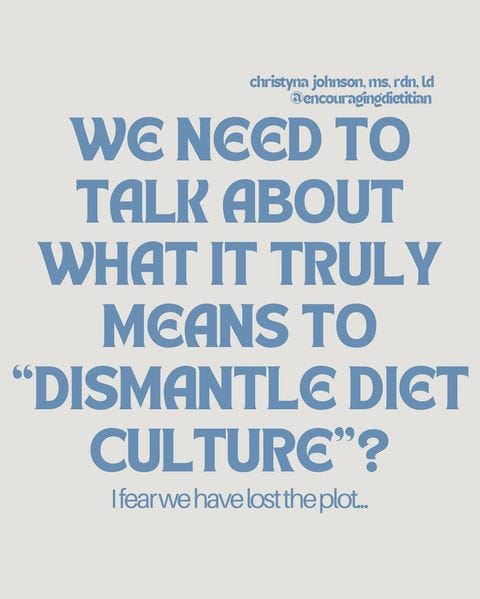
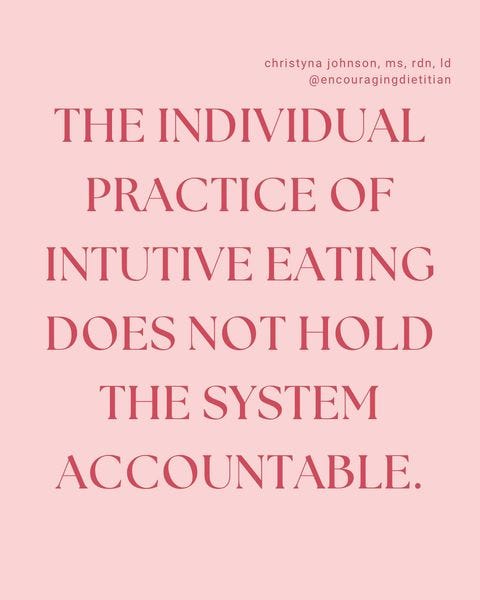

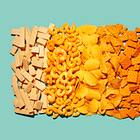


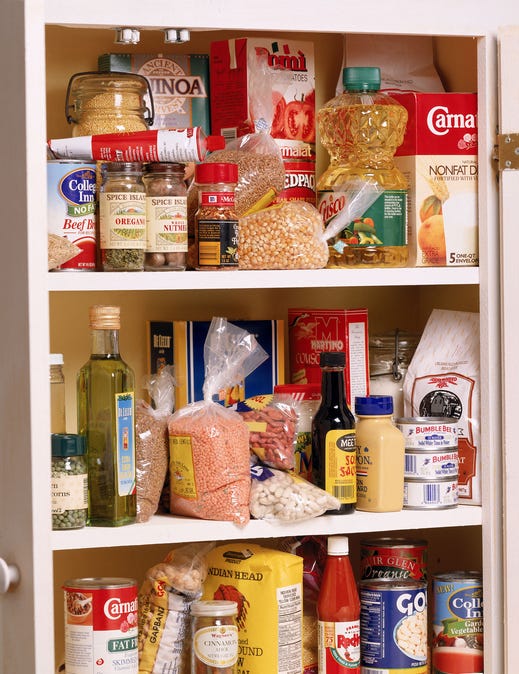


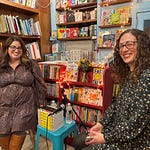

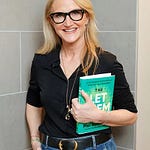
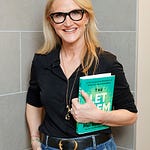




Share this post